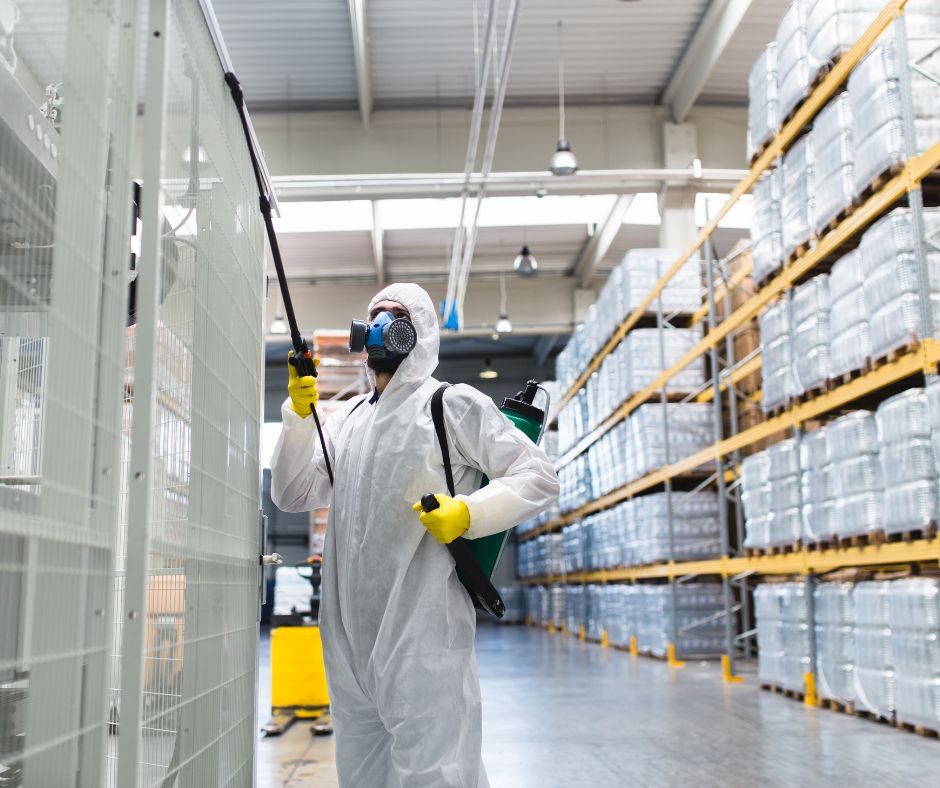How an Exterminator in Port Charlotte Can Protect Your House from Infestations
Reveal the Significance of Bug Control in Preserving a Healthy And Balanced Atmosphere and Treatment Strategies

The Duty of Insects in Ecological Communities
Parasites, commonly viewed exclusively as nuisances, play a diverse duty in ecosystems that is crucial for maintaining eco-friendly balance. They add significantly to various environmental procedures, consisting of pollination, nutrient biking, and insect control. As an example, many insect species, such as butterflies and , are crucial pollinators for a vast array of plants, which subsequently supports biodiversity and food manufacturing.
In addition, pests offer as victim for various predators, creating a crucial link in food webs. This interdependence makes sure the survival of numerous varieties and assists manage populaces within ecosystems (Termite treatment Port Charlotte). Furthermore, decomposer insects, such as certain beetles and fungi, are important in breaking down natural issue, hence improving dirt and promoting vitamins and mineral recycling.
Conversely, while pests can be advantageous, their overpopulation or invasion into non-native environments might interrupt these environmental functions. This intricacy emphasizes the relevance of recognizing bug dynamics, as effective parasite administration techniques should take into consideration both their eco-friendly functions and potential effect on human tasks. Balancing pest visibility while lessening harm is crucial for protecting the honesty of communities and guaranteeing farming efficiency.
Health Threats Related To Bugs
The presence of parasites in different settings prolongs past their environmental roles, as they additionally present significant wellness risks to animals and human beings. Numerous pests, consisting of insects, parasites, and rats, are service providers of illness that can have significant health ramifications. As an example, rodents are understood to send hantavirus and leptospirosis, both of which can bring about severe respiratory system and kidney issues, respectively.
Bugs such as insects and ticks are infamous for spreading vector-borne illness like malaria, dengue fever, and Lyme disease. These health problems can cause high morbidity and death prices, particularly in susceptible populaces. Furthermore, parasites like bedbugs and cockroaches can intensify allergic reactions and asthma, adding to respiratory issues in individuals, particularly those with pre-existing conditions.
Moreover, the existence of bugs can bring about emotional tension and discomfort, affecting general wellness. Contamination of food and surfaces by insect droppings and stays can result in foodborne diseases, highlighting the relevance of keeping hygienic problems. Consequently, recognizing the wellness dangers related to insects is important in acknowledging the requirement of efficient insect management strategies to safeguard animal and human wellness.

Advantages of Reliable Parasite Control
Effective parasite control is necessary for maintaining a risk-free and healthy setting, as it continually alleviates the various risks associated with pest invasions. One of the primary advantages of efficient parasite administration is the reduction of wellness risks.
In addition, efficient pest control safeguards residential or commercial property and frameworks from damage. Several insects, like termites and woodworker ants, can cause extensive architectural damages that may require expensive repairs. By proactively handling these house owners, infestations and companies can shield their investments.
One more considerable benefit is the improvement of overall high quality of life. A pest-free setting adds to mental wellness and minimizes stress related to invasions. Effective insect control promotes a more secure setting for youngsters and family pets, making sure that homes stay havens totally free from disease-causing organisms and hazardous chemicals.
Common Pest Control Strategies

In the world of insect monitoring, different strategies are used to fight problems efficiently. These strategies can be extensively classified into 3 primary strategies: cultural, mechanical, and chemical controls.
Social control involves customizing techniques to lower pest recreation, facility, and survival. This may consist of crop rotation, appropriate cleanliness, and habitat control, which jointly develop a setting less for pest proliferation.
Mechanical control uses physical methods to get rid of parasites (Termite treatment Port Charlotte). Techniques such as catches, vacuums, and obstacles are typically used to straight eliminate pests from a location. This approach is particularly reliable for handling rats and insects without the use of unsafe chemicals
Chemical control entails the application of pesticides to take care of pests. These materials can be categorized right into fungicides, insecticides, and herbicides, my link each targeting details types of bugs. It is important to make use of these chemicals judiciously, adhering to safety and security standards and laws to minimize prospective harm to non-target types and the environment.
Each insect control method has its restrictions and advantages, and frequently, an integrated method incorporating numerous methods produces the ideal outcomes in preserving a pest-free atmosphere.
Lasting Parasite Management Practices
Sustainable bug management techniques encompass a variety of strategies made to minimize environmental influence while successfully regulating parasite populations. These techniques prioritize using ecologically pleasant methods over chemical pesticides, therefore lowering the risk of damage to non-target species, including valuable pests, wildlife, and people.
Integrated Pest Monitoring (IPM) is a foundation of lasting practices, combining biological, social, mechanical, and chemical techniques to take care of insects. For example, biological control includes presenting all-natural predators or parasites to suppress pest go populaces. Cultural methods, such as plant turning and polyculture, disrupt pest life process and enhance environment resilience.
Mechanical techniques, such as obstacles or catches, can successfully stop insect accessibility without chemical treatment. Furthermore, maintaining healthy and balanced ecological communities with appropriate soil management, plant health and wellness, and biodiversity can naturally mitigate bug concerns.
Education and awareness are vital components, equipping people and communities to recognize pest risks early and apply precautionary measures. Termite treatment Port Charlotte. By fostering a holistic technique that balances insect control with environmental honesty, sustainable insect management practices not just shield crops and structures yet likewise contribute to a much healthier environment for future generations
Verdict

Recognizing the health risks associated with insects is crucial in identifying the need of efficient pest monitoring techniques to secure animal and human wellness.
Efficient parasite control is crucial for keeping a secure and healthy and balanced environment, as it regularly alleviates the various threats connected with parasite problems.Integrated Insect Administration (IPM) is a foundation of lasting techniques, integrating biological, cultural, mechanical, and chemical techniques to take care of bugs. By recognizing the duty of bugs, acknowledging involved health dangers, and using diverse therapy methods, a sustainable method to pest management can be attained. Integrated Insect Monitoring (IPM) stresses an click to read alternative methodology that alleviates injury to valuable microorganisms while successfully regulating insect populaces.